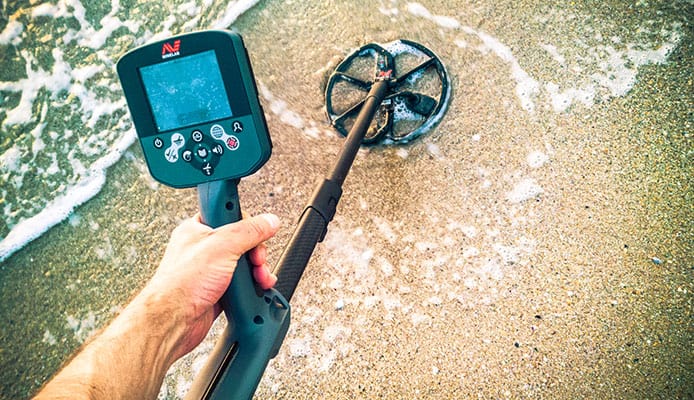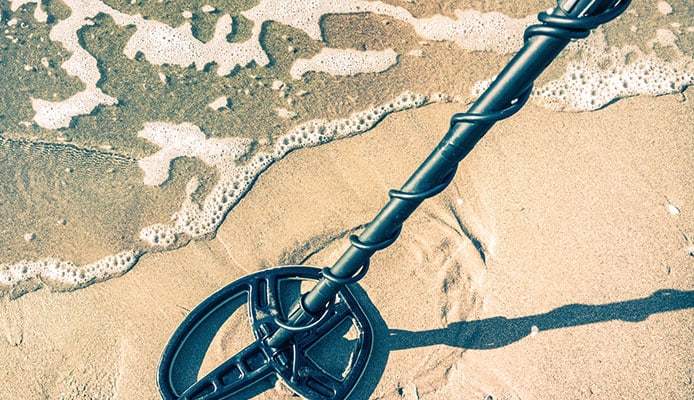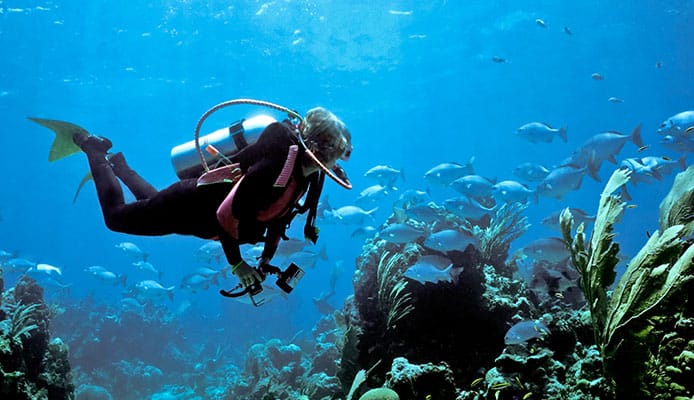-
1.
-
2.
-
3.
-
4.
-
5.
There’s plenty of treasure trapped under the sea just waiting to be found. Generally though, hunting for that treasure has been a lot harder than it is on solid ground as metal detectors weren’t able to go below the water to search for that precious metal.
Thankfully technology has moved on and we’re now able to reach beneath the waves, and with the best waterproof metal detector, we have a much better chance of unearthing a lost piece of history. Before you can do that though you need to buy one and that involves checking the depth, accuracy and detection type among many other factors.
Thankfully we’re here to answer all of your questions and have also come up with the best products on the market after going through the underwater metal detector reviews. After reading this guide you’ll be able to choose the best underwater metal detector with confidence and head out to try and find your treasure.
OUR TOP PICK
Garrett AT Pro Metal Detector
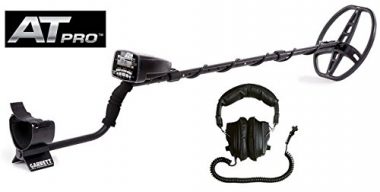
- Stand Out Features - Why We Love It
- Waterproof to 10 feet
- Digital target ID
- High-res iron discrimination
EDITORS CHOICE
Quest Scuba Tector Hand Held Metal Detector
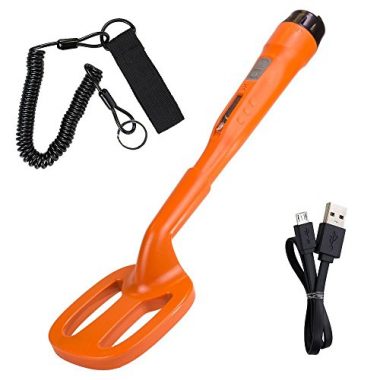
- Stand Out Features - Why We Love It
- Handheld device
- Available in black or orange
- Lost alarm and lanyard attachment
BEST VALUE
X-Lounger Underwater High Sensitivity Metal Detector
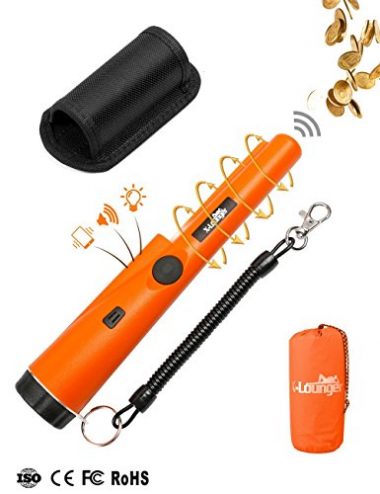
- Stand Out Features - Why We Love It
- 360-degree side scan
- Handheld device
- Portable and lightweight
KKmoon Metal Detector
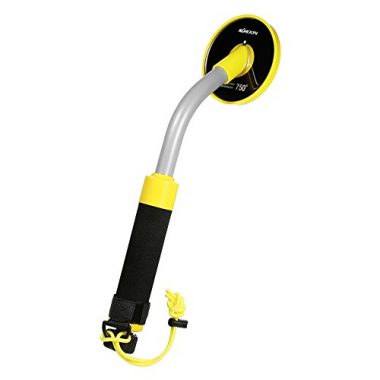
- Stand Out Features - Why We Love It
- Waterproof to 98 feet
- Communicates via LED and vibration
- Pulse induction technology
TTLIFE Pulse Induction PinPointer 30M Metal Detector
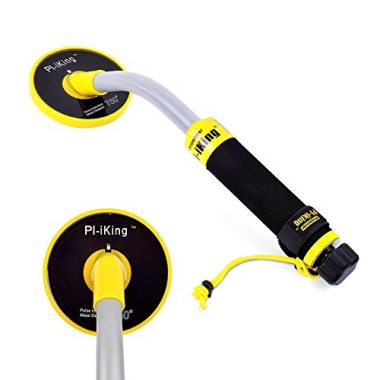
- Stand Out Features - Why We Love It
- Low battery indicator
- Tilt on/off switch
- Vibration an LED system
Tesoro Sand Shark Metal Detector
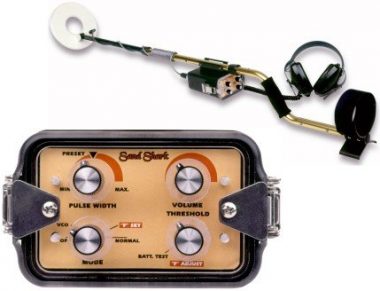
- Stand Out Features - Why We Love It
- Pulse width control
- Waterproof to 200 feet
- Up to 20 hours of battery life
Treasure Cove TC-7010 Metal Detector
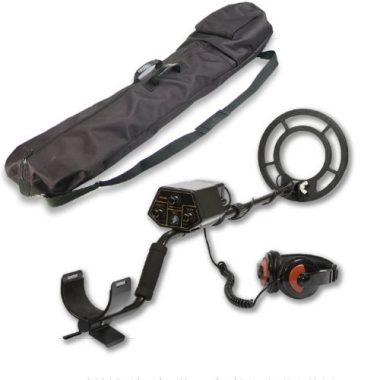
- Stand Out Features - Why We Love It
- Waterproof headsets
- 10 inch search coil
- Can find metal 8 inches below the surface
Minelab Excalibur II Metal Detector
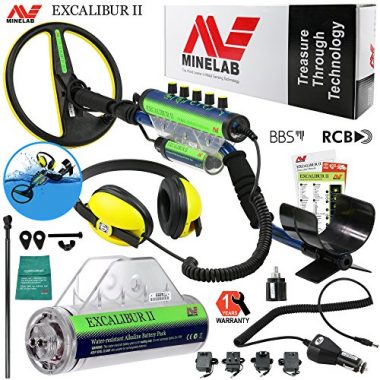
- Stand Out Features - Why We Love It
- Bright and colorful
- Battery lasts for 12 hours
- Comes with headphones
Fisher CZ21-8 Metal Detector
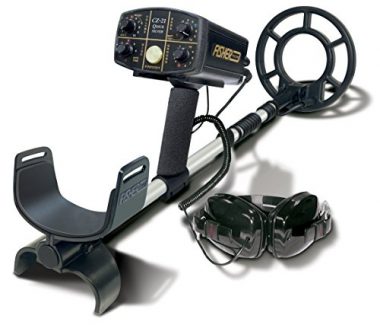
- Stand Out Features - Why We Love It
- Submersible to 250 feet
- Auto-tune mode
- 3-tone audio target ID
Kids Metal Finder Metal Detector
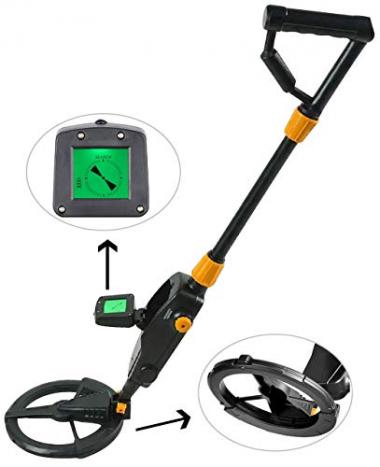
- Stand Out Features - Why We Love It
- Submersible coil
- LCD screen
- 3 foot of range
How To Choose The Best Underwater Metal Detector – Buying Guide
Detection Type
When it comes to detection type, these types of products generally fall into one of two categories and that is either that they have a very low frequency (VLF) detection or they have a pulse induction (PI) type and both have their merits although PI models do tend to be more expensive than their rival.
That extra expense is mainly due to the fact that they are not sensitive to minerals that are in the ground which also makes them better for use in saltwater as well. While that is an advantage, they do have the downside of struggling to avoid detecting junk.
VLF detectors therefore at better at ignoring anything else and just focusing on what you wanted to find which are the precious metals and antiques. If you’re in freshwater with low mineral content below then a VLF would be the best option but for other conditions a PI model would be a better option.
Depth
Of course if you’re going to be taking your metal detector underwater then you have to know how far it will go until it stops working. Some of the products in this list are intended to be used for wading with just the coil will be below the surface, some have a small level of complete waterproofing while others can go to great depths before they stop working.
In terms of what depth is best for you then this depends on what activity that you intend to be doing. If you never envisage yourself putting on a wetsuit and diving into the sea then you obviously wouldn’t need a product that could go up to 250 feet below the surface.
If you love scuba diving then getting a metal detector can be a great accessory as you can go searching for gold while you look at the sights below the water. It’s always best to err on the side of caution though and if you’re between two options then it might be best to opt for the one with the greater depth as you never know when you’ll want to go a bit deeper.
Accuracy
Accuracy is one of the most important factors when it comes to a detector and knowing how deep you are looking to go is an important consideration. This can vary greatly from model to model so it’s important to check the product description as well as the user reviews before you decide to buy.
If you’re looking through shallow ground then you may not require a metal detector that has a long range and accuracy but as you start searching for things a little deeper then this can become more important as items become harder to find.
Versatility
There are three key environments which all require different things from a metal detector and that is whether they are on land, in saltwater or in freshwater. If you had all the money in the world then you would probably want to buy three metal detectors for each scenario but most people don’t have the luxury to be able to do such things.
Therefore if you want a metal detector that can do all three then you need to consider what type of model that you want. Pulse induction detectors work better in saltwater so if you’re looking for a model for both types then it’s probably best to opt for that one.
If you’re looking for an underwater model that you can use out of the water then you also have to think about the weight as underwater models need to have that added weight to them to counteract the buoyancy of the water which means that they might be very heavy when on land. It’s important to check the weight to make sure that it’s something you’ll be able to handle.
Accessories
Additional accessories are always a nice added feature to have when you are buying any product and that includes metal detectors. Some of them will just come with the device while others will throw in a few additional items.
One of the biggest ones if your detector requires them is waterproof headphone as these will let you know through deeps about how close you are to finding something important. It’s important to know however that a lot of these models don’t require headphones at all and instead rely on vibrations and LED lights.
There are also other accessory options such as reachable batteries, straps can spare coils which can all be useful and be the difference between you choosing one product over another. You should always keep the main product in mind though and always choose quality.
You might also like: Beach Metal Detectors
Saltwater Vs Freshwater
Saltwater has minerals in it which can affect how a metal detector functions but specifically this refers to the VLF detectors as they are much more heavily affected by the presence of saltwater and minerals. These will still work but just not as well as the PI models which are much more adept at dealing with these types of conditions.
If you’re only ever going to be in freshwater when the VLF type of detectors would probably be better and they are less prone to detecting random junk and therefore would be more precise. If you’re looking for an all-around model in all conditions though, then it’s best to opt for a VLF type of metal detector.
Weight And Buoyancy
If you’re using anything in the water then you generally want it to have neutral buoyancy so that it doesn’t sink too quickly into the water but also you don’t want it to constantly try to float to the top either as that would be very difficult to control. It’s a balance that is hard to find but one that is important when it comes to underwater metal detectors so finding the right weight is important.
If you want to use the metal detector out of the water then you also want to make sure that it’s not going to be too heavy to use. All products will display their net weight so if this is a key consideration to you then just ensure that you are checking the weights and comparing them.
FAQs
Q: Are Metal Detectors Waterproof?
Metal detectors in general aren’t waterproof as they can’t be fully submerged in water or else they’ll quickly break, this is why getting one which is able to go underwater is vital as they will have a level of waterproofing.
There are two levels to this when it comes to products that can go underwater with the traditional looking metal detectors and those are the coil and the control box. With some of these products that we have reviewed here, the coil is completely waterproof but the control box isn’t. This means that you are able to wade through water without being able to do much else.
There are products though that are fully waterproof and can go to great distances underwater. If you’re wanting to go diving then it’s vital that you find one of these products and there are a few options available in this list.
Q: Can You Use Waterproof Metal Detectors On Land?
Yes, absolutely, as their primary function will still work whether that is over dirt or if it’s over sand. They aim to penetrate down through the surface to check if there is any metal down below. There are of course waterproof metal detectors which are handheld which will be more difficult to use on land.
The other big consideration is due to weight, as there are a lot of waterproof metal detectors generally weigh more than their land counterparts. Due to these factors there are a few key areas to check before you make your decision but in regards of how they operate, you can defiantly use a waterproof metal detector on land.
Q: Why Is Pulse Induction Better For Saltwater Detecting?
When it comes to the two types of metal detector the main difference in terms of being waterproof is that one deals with the being in saltwater a lot better than the other. The pulse induction type of detectors won’t be affected by a high mineral content which can come from the salt in the water as they will be able to see a much clearer view of the ground below them.
The VLF type of detector though will be affected by the salt minerals and that clouds its signal so therefore it can’t be as effective when it is placed in saltwater. If you’re heading out to the sea then make sure that you are getting a pulse induction detector otherwise you won’t get great results as your signal will be clouded by the minerals if you used a VLF detector.
Q: What Sort Of Headphones Do I Need?
What headphones you need are all based on what model you are getting so before you make your purchase you need to make sure that you’re looking at the product and see if they need headphones and if they do, whether the product you’re buying comes with them or they need to be bought separately.
A lot of the products on this list are handheld devices that you can use to scan the floor. With these products they don’t need headphones as they will alert you to a finding another way, either by vibrating or using a display. This is a very easy to use product and a very simple one in terms of its detection system.
There are also metal detectors which make on a more traditional look which are underwater models and some of these have headphones while others don’t. The ones that don’t have headphones will work in the same way as those handheld models and work via vibrations and lights. The ones that use headphones should have them attached to the model so they’ll be no need to buy them separately.
The other type of option available is the type of detector that has a waterproof coil but can’t be fully submerged in the water. These types of device keep their control box out of the water so you wouldn’t need any special type of headphones in order to use these devices and they will never be fully in the water.
Q: How Important Is The Weight Of An Underwater Metal Detector?
When you’re using a metal detector over land then they obviously want the device to be as light as possible so that it is easy to handle and easy to move. In the water though if you were trying to dive with something that was light and buoyant then you’d have another problem as you’d be constantly fighting against the device as it tries to get back to the surface.
If it was too heavy then of course you’d then be fighting against the device trying to sink so weight is an important factor as you want to ensure that the metal detector sits in the water neutrally and is easy to handle. Of course, companies know this so make sure that their product is the correct weight to be used in the water. This, of course, is not as important with handheld devices as they are easier to handle.
An important consideration to make here though is that if you are wanting to use your metal detector for a variety of different searching activities then you need to check that it’s an appropriate weight. Generally underwater models are heavier so a detector that’s easy to handle in the water might be difficult to take around over ground.
Weight is an important factor but companies factor this into their product so it’s not something that you should worry about too much. If you want to use your device over ground though it’s important to double check to ensure that it’s not too heavy.
Q: Are Underwater Metal Detectors Suitable For Beginners?
There are metal detectors here that can dive to over 200 feet into the water so can be used in very deep water and in very tricky situations. Here we have two factors that you need to be well skilled at and they are metal detecting and diving. If you are great at using a metal detector but aren’t a great diver then that is going to be dangerous, and if you’re a great diver but a novice on the metal detector then you’re going to find it very difficult.
You need to ensure that first of all it’s going to be safe so if you’re going to be underwater then you have to make sure that this is going to be comfortable enough for you to use. The actual use of the metal detector is fairly simple so they can be used by anyone as you start to build up your expertise on how best to find that treasure you’re looking for.
Globo Surf Overview
Using a metal detector can be a fun and rewarding experience and using a submersible metal detector can add an extra level of excitement as you try and find the treasures that can be locked beneath the waves with your water bounty hunter. Finding the top rated waterproof metal detector though can be tough which is why we have gone through all the key features here.
These metal detectors can be used in a wide variety of different situations. You might want to do something a little different at a beach, you might want to put on your snorkel gear and scour the shallow water or you might even want to put on your wetsuit and go searching around a shipwreck with a scuba metal detector.
To pick the best metal detector for you, you need to work out which of these activities that you want to do and then get a detector to match. The handheld devices are better for snorkelling and if you wanted to wade at the beach then choosing a machine that just has a waterproof coil would be ideal. If you want to dive deeper then you’ll need to get one of the full sized submersible detectors.
If you’re heading out into saltwater then you want a pulse induction detector as these will be able to ignore the signal from the minerals and if you wanted to be able to use that detector on land then you’ll need to check the weight of it to ensure that it’s easy enough to carry.
Once you know what you want then you can head out to the water and start hunting for your treasure with your new metal detector. Hopefully when you’re there you can make some great findings and have a lot of fun in the process. Hopefully this buying guide has answered all your questions so you can buy your metal detector knowing that it’s the perfect choice for you.


